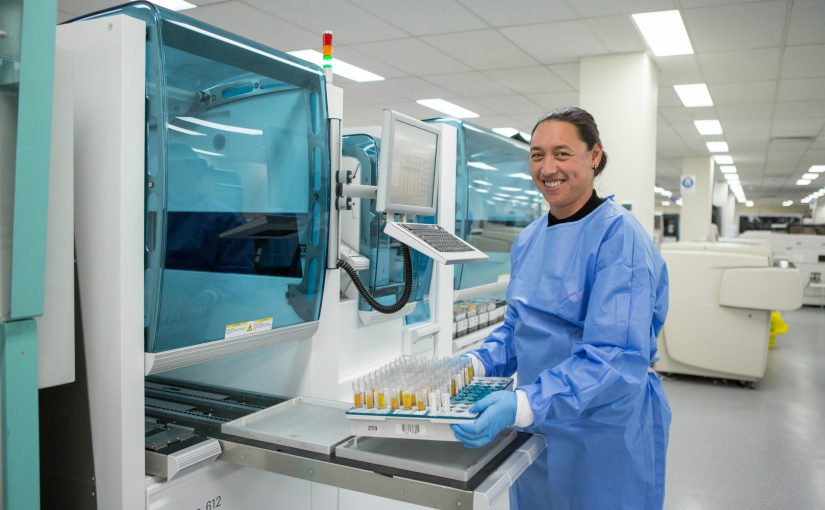Medical scientists have university degrees that teach them about the human body and how to measure various bodily functions.
Many of the practical skills and scientific knowledge used by Medical Scientists is the same as research scientists searching for cures to conditions. The difference is that Medical Scientists apply that know-how to providing results that can help someone here and now.
In large pathology laboratories, Medical Scientists may specialise in certain areas such just as specialist doctors do. In small or rural labs, they may become multi-skilled and perform a wide range of tests.
Some tests are done on sophisticated machinery and the scientists must know not only the theory behind how the machines work, but how to maintain and fix them and how to assess results to ensure that the machine is functioning as expected. Other tests are performed manually and may involve scientists mixing chemicals in tubes or peering down microscopes at cells.
Because their work is needed to provide urgent results, Medical Scientists will often work in shifts around the clock or participate in ‘on-call’ rosters which can see them rushing into work at all hours of the night or holidays to complete life-saving work.

